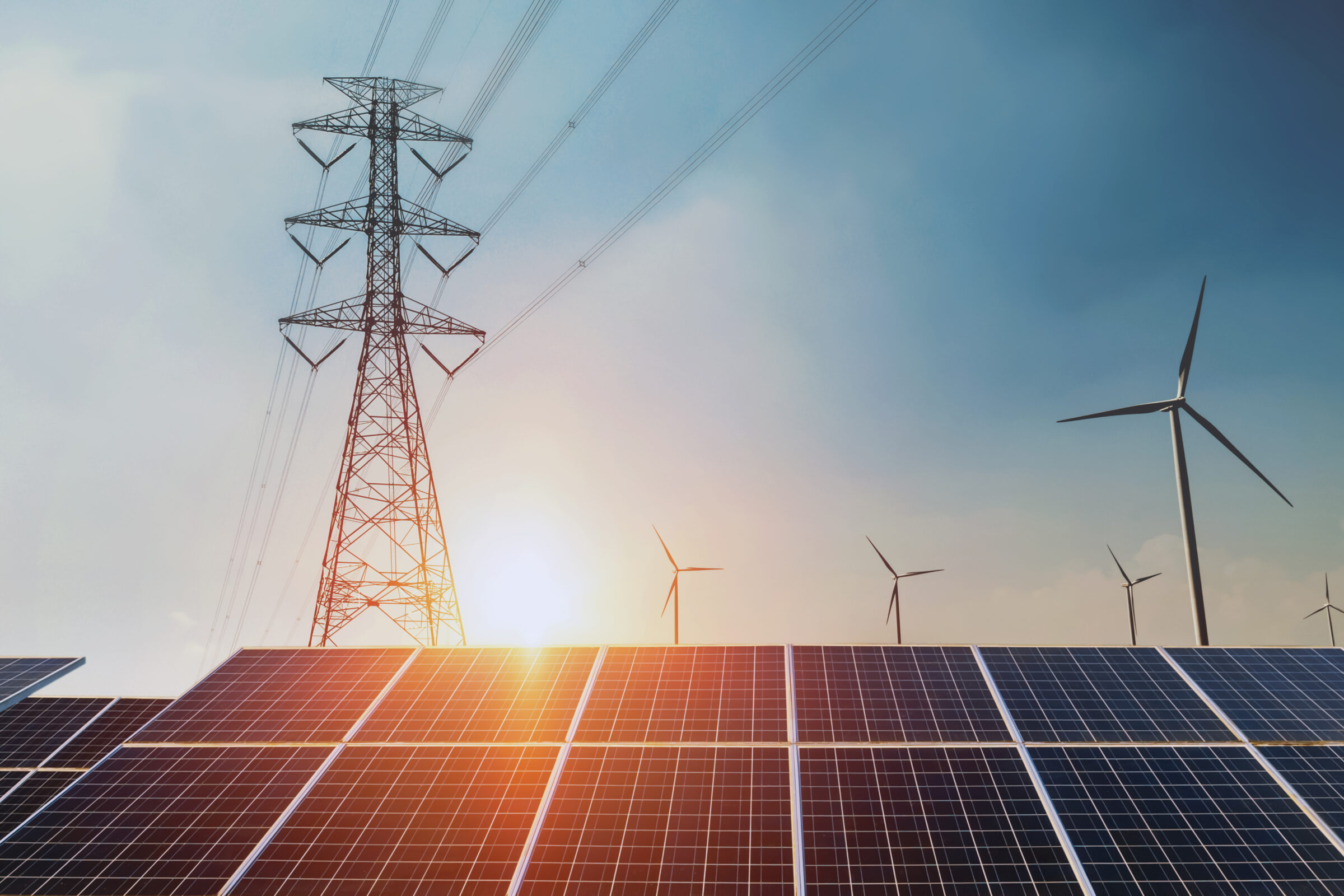- Grid Infrastructure
- Transmission & Power Markets
- Press Releases
Experts Tout Interregional Transmission to Combat Grid Reliability Concerns
WASHINGTON, D.C. – As much as two-thirds of North America could face electricity shortages this summer in the event of severe and protracted heat, according to the North American Electric Reliability Corporation (NERC), which sets and enforces standards for the electric grid. A panel of grid experts convened by the American Council on Renewable Energy (ACORE) today discussed NERC’s assessment and the importance of building interregional transmission lines to ensure grid reliability.
“NERC’s report provides further evidence of the need for greater regional and interregional transmission capacity to address increasingly extreme summer weather,” said Kevin O’Rourke, ACORE’s Vice President of Strategic Partnerships and Public Affairs. “Study after study shows the reliability and economic benefits of increased interregional transmission ties, particularly in extreme weather. Given projections of more frequent extreme weather events, the U.S. must prioritize the development of these potentially life-saving lines.”
Extreme weather events challenged most grid regions over the last decade. During Winter Storm Uri in 2021, interregional transmission ties allowed power grid operators in the Great Plains and the Midwest to import 15 times more electricity during the storm than Texas could import, helping those regions avoid widespread outages. Similarly, stronger interregional transmission ties would have protected consumers from blackouts and price spikes during Winter Storm Elliott in December 2022.
“We need power grids that are bigger than weather systems,” said Rob Gramlich, President and Founder of the consulting firm Grid Strategies. “New lines take years to plan and build, and as the blackouts during recent winter storms demonstrated, we’re simply not planning enough lines to ensure reliability.”
Additionally, the nation’s reliability challenges may be more widespread than NERC’s report suggests.
“NERC’s 2022 winter assessment found no reliability concerns for TVA, yet the utility experienced large-scale rolling blackouts during Winter Storm Elliott in December,” said Simon Mahan, Executive Director of the Southern Renewable Energy Association. “This summer, NERC has again found no reliability concerns for much of the Southeast despite a lack of new connections developed among neighboring grids since the last storm. Increasing transmission connections with our neighbors enables better reliability, and also economic savings, especially during extreme weather events that we may be underestimating.”
The panelists’ comments and the NERC report are consistent with a recent draft report from the U.S. Department of Energy, which found a “pressing need” for more transmission and that significant interregional transmission is required in several future scenarios.
Grid reliability in extreme weather will be top of mind for the Federal Energy Regulatory Commission (FERC) when commissioners meet June 15 and discuss the regulator’s joint inquiry with NERC into Winter Storm Elliott. Additionally, FERC may finalize a rule directing NERC to modify its transmission planning reliability standard to address extreme weather events that impact reliability, as well as a proposal requiring transmission providers to describe their current or planned policies for conducting extreme weather vulnerability assessments.
ACORE urges Congress, FERC, Regional Transmission Organizations, and other planning entities to closely examine ways to facilitate the development of more interregional transmission projects.
To watch a recording of today’s webinar, featuring panelists from CAISO, ERCOT, Grid Strategies, Kansas Corporation Commission, Renewable Northwest, and the Southern Renewable Energy Association, click here.
###
About ACORE:
For more than 20 years, the American Council on Renewable Energy (ACORE) has been the nation’s premier pan-renewable nonprofit organization. ACORE unites finance, policy and technology to accelerate the transition to a renewable energy economy. For more information, please visit www.acore.org.
Media Contacts:
Alex Hobson
Sr. Vice President, Communications
American Council on Renewable Energy
hobson@acore.org | 202.777.7584 (o) | 202.594.0706 (c)
Dylan Helms
Associate, Communications
American Council on Renewable Energy
helms@acore.org | 202.891.7868 (o) | 727.290.8804 (c)
Join leaders from across the clean energy sector.

What will our next 20 years look like? Here’s the truth: they’ll be better with ACORE at the forefront of energy policy.
Shannon Kellogg
Amazon Web Services (AWS)
